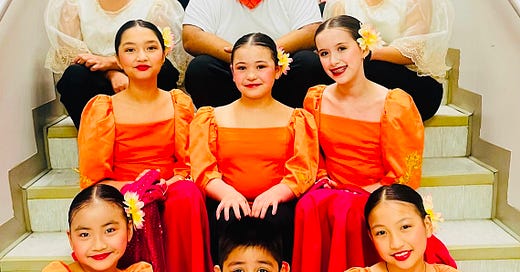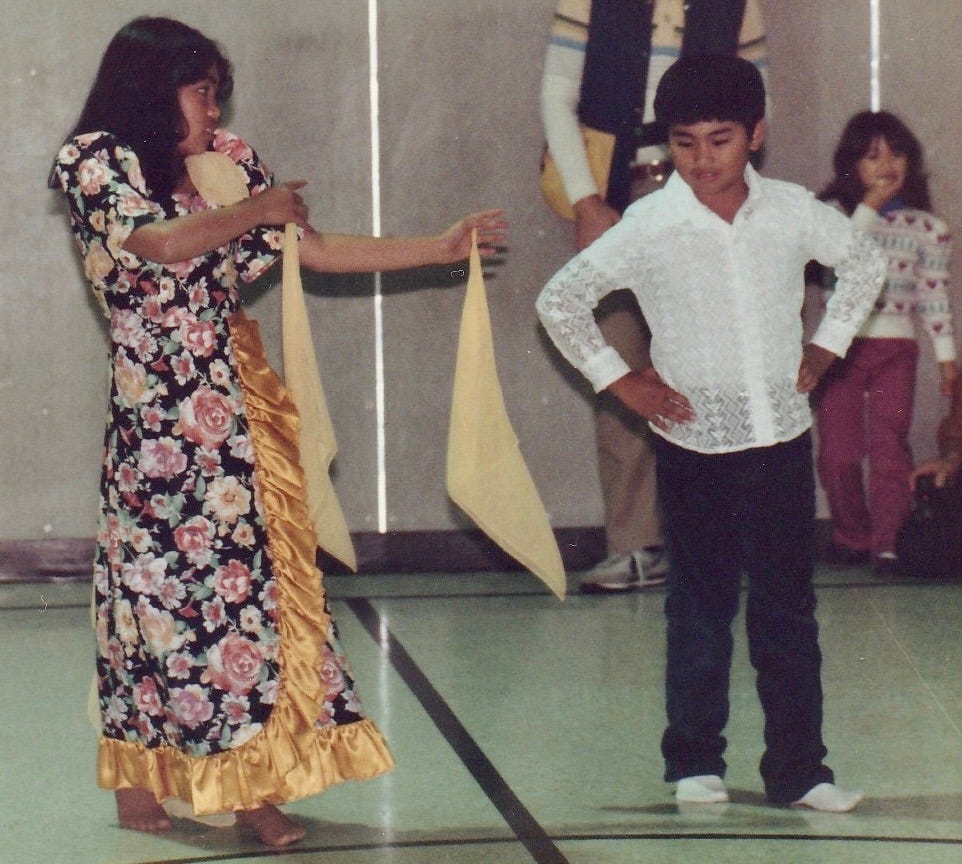By Jalia Rodriguez
The Filipino community in Ketchikan is growing, with more Filipinos moving to the area each year. Their culture and traditions are spreading and as the community grows, they are helping make Ketchikan more diverse and stronger. This growth shows Filipinos are becoming an important part of the town.
Alma Manabat Parker, Filipino-American (Fil-Am) community advisor, talked about how the Ketchikan Filipino community feels like having an extended, supportive family. People cheer you on and take pride in your accomplishments, even if they don't know you personally. Whether it's local residents or celebrities, there's an instant connection just because you’re Filipino.
“I think being in this community is the immediate connection to one another and finding an immediate sense of family right away.”
She continued to add that the Filipino community in Ketchikan was once strong and close knit, especially in the late 70’s and early 80’s, with many working in the Coast Guard and fisheries. The community center played a big role in cultural events and celebrations. After the center closed in 2015 and Covid hit in 2020, connections weakened, and people focused more on their own families. Now there's a push to reconnect and rebuild the community.
“It was really strong when I first started growing up and then I think it fell down a little bit and people were kind of doing their own thing,” said Parker. “Covid hit truly and everybody started doing their own thing.”
Parker said the Filipino community in Ketchikan grew through work at canneries, the military, and medical jobs. Immigration was easier when the Philippines was a U.S. territory. One family helped bring over relatives, except for Auntie Norma, who stayed behind due to paperwork issues. Years later, her story was honored at a museum exhibit, symbolizing her long awaited arrival in the U.S.
“Once one family member comes to Ketchikan, it just kind of grows exponentially and cousins come and then more relatives come.”
Parker talked about how the Filipino cultural classes on Sundays taught dances and traditions, helping raise awareness in Ketchikan. Now efforts to revitalize the culture include school programs and events, empowering young Filipinos to preserve traditions. Despite making 10% of the population, the Filipino community has often been overlooked, but there's a renewed push to celebrate and sustain their culture.
“Filipinos are often forgotten, we were always known as the invisible culture here,” said Parker. “We do have the right to have our culture celebrated and seen.”
She said the effort to reconnect the Filipino culture is driven by a sense of responsibility to future generations. The goal is to pass on cultural traditions to younger ones through community programs. Though personal recognition feels uncomfortable, it's viewed as a chance to celebrate Filipino identity. The journey is about fully embracing and sharing that heritage.
“This is really, I think, for me a personal journey of reconnecting and knowing that I kind of grew up in a society that was predominantly white, I'm choosing to be Filipino.”
Parker talked about advice she would give to younger generations about continuing to grow. Her advice is to embrace opportunities for personal growth and help others connect, especially for those who may feel isolated. It's never too late to reconnect with one's heritage, learn a language, and explore cultural pride, no matter your age.
“It's never too late to reconnect with being Filipino and acknowledging my Filipino heritage, always keep it open.”
Czarina Cabillo, Filipino-American (Fil-Am) community advisor, talked about how being a part of the Ketchikan Filipino community reflects pride in Filipino heritage and creates a sense of comfort in speaking the native language.
“It really shows my Filipino pride and it makes me feel safe to speak my own language.”
She talked about how there was a desire to fit in with those raised in America, influenced by movies, and meeting more Filipinos in the community boosted pride in Filipino identity.
“When I first got here (Ketchikan) my first instinct was to blend in with people who grew up in America,” said Cabillo. “From the movies I watched when I met more Filipinos that live in this community it made me more proud of who I am as a filipina.”
Czarina talked about how the Ketchikan Filipino community continued to grow its culture and traditions over time and it began with dance and cultural classes for kids, which they then shared with their parents, encouraging them to teach family traditions from the Philippines.
“It started with the kids through dance and cultural enrichment classes,” said Czarina. “Then when they go home they share the information that they’ve learned and share it with their parents. I got them to teach more about family traditions that they used to do in the Philippines.”
Czarina described how it brings a sense of home, easing homesickness, especially having grown up in the Philippines.
“It makes me feel at home since I grew up in the Philippines,” said Czarina. “It made me feel less homesick.”
Junior Czara Cabillo talked about how meaningful, as the Filipino community in Ketchikan made it feel like home, similar to the Philippines and helped create a sense of belonging.
“It means a lot to me. The Filipino community made Ketchikan feel like home, like back in the Philippines,” said Czara. “It also helped me feel more like I fit in.”
Czara said within the years, the Filipino community of Ketchikan has been growing, with events like the festival, Fil-Am club, and Magsayawan Ketchikan which brings people together.
“The Filipino community has definitely started to grow,” said Czara. “With the festivals happening, Fil-Am club, Magsayawan Ketchikan and other groups of Filipinos gather.”
She explained that Filipino adults and young adults teach kids cultural traditions, ensuring they are passed down to future generations.
“Adults or young adult Filipinos teach kids the culture and traditions and will pass it on to the next generations and on.”
She said the Filipino community feels like family, providing support in understanding the local system and navigating life here.
“The Filipino community is a family for me,” said Czara. “It helped me figure out how the system works here and how to get around.”
Czara said to always remember your identity and culture, share and celebrate Filipino traditions with others.
“Don't forget who you are and the culture that you are. Instead, spread it and share your traditions and culture of being Filipino.”




